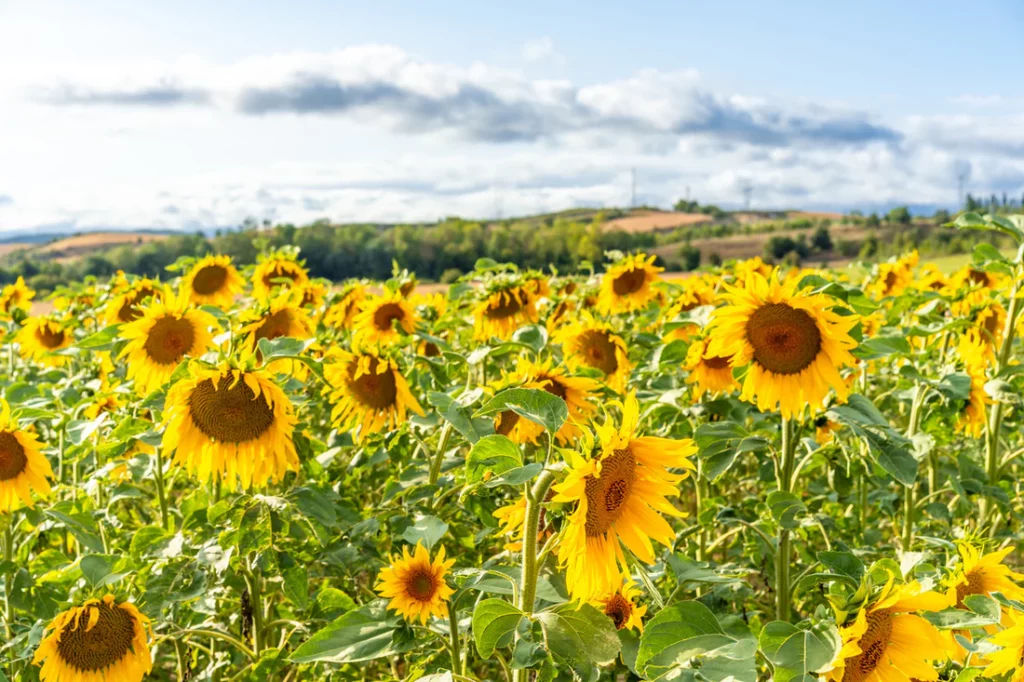At Lattini, we see a future filled with sun-drenched farmlands, where sustainability is in full bloom. Under beautiful blue skies, sunflowers are standing tall, not just as a part of picturesque scenery, but as one of the cornerstones of eco-friendly farming.
Today, we’re looking to shine a light on their role in sustainable agriculture, and see how the drought-tolerant sunflower can be a step towards a greener future for our planet.
So, Why Does Drought Tolerance Matter?
When it comes to sustainable farming, by far one of the biggest challenges is the responsible use of water. With less water to go around and rain patterns getting all out of whack, it’s becoming clearer than ever that we can’t keep treating water like it’s an infinite resource, especially in times of drought.
For example, consider how almonds require a whopping 4.9-5.7 million acre-feet of water per year—that adds up to a huge strain on natural resources and highlights the importance of looking towards less-demanding crops.
Luckily, there’s a ray of hope in the form of drought-tolerant plants like the sunflower. These resilient crops have the ability to withstand water scarcity and thrive in challenging conditions. By requiring less water, these crops help conserve precious resources and ease pressure on aquifers and rivers. It’s a win-win that supports sustainability and protects our ecosystems!
The Resilience of Sunflowers
Sunflowers are no strangers to tough times—they may look pretty, but they’ve earned their reputation for thriving in the harshest conditions where other plants can’t survive. When it comes to sustainable farming, sunflowers are some of the most resilient plants you could ask for.
The sunflower can credit its resilience to an intricate root system that reaches several feet down into the soil. These roots have multiple uses, as they can tap into hidden water reserves all while stabilizing the surrounding soil from erosion.
In an unstable climate, where unreliable rainfall patterns and extended dry spells are becoming increasingly common, the sunflower has a truly amazing ability to survive drought (without even compromising yield!). All around the world, it’s becoming clear that water scarcity isn’t just a challenge; it’s a crisis. This is where drought-tolerant crops like sunflowers come in as real lifesavers.
A Sustainable Future with Sunflowers
Sunflowers are helping farmers pave the way for a brighter, more sustainable future. Check out the incredible ways they’re making a difference:
- Nurturing Soil Health: Sunflowers are great at keeping soil healthy and happy. Their roots work wonders underground, as they help aerate the soil and keep it nutrient-rich.
- Supporting Pollinators: Bees and butterflies love sunflowers as much as we do! By planting sunflowers, we’re giving these essential pollinators a place to thrive, which is crucial for the health of our entire ecosystem.
- Reducing Chemical Inputs: Sunflowers are fantastic at keeping pests at bay, which means farmers can use fewer harmful chemicals on their crops.
- Phytoremediation Pros: Sunflowers have a secret superpower: they can clean and rejuvenate soil! Thanks to their deep tap roots, sunflowers help store carbon in the ground and contribute to more fertile soil.
Choosing Sunflower Milk for the Planet
Lattini Sunflower Milk embodies the very essence of the sunflower story, as it blends the strength of the sunflower with the simple joy of a health-conscious choice. Go ahead and make the switch, not just for a better you but for a better world.
Join the sunflower’s sustainable mission today, and together, we just might be able to turn the tides of agriculture towards a brighter and more resilient horizon.


